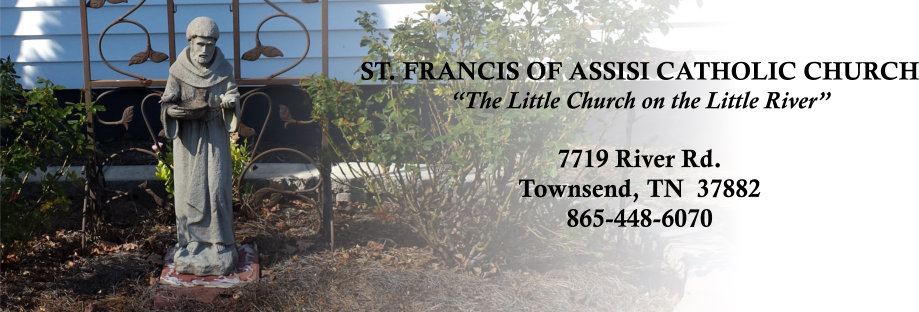The Sacristan Ministry at St. Francis of Assisi Church
Ministry Head: Kathy Meyerkord • kmmeyerkord@gmail.com • 630-698-5563
Role of the Sacristan
The role of a sacristan is one of supporting the priest, the liturgical ministers and the liturgy itself. Once the liturgy has commenced, the sacristan normally situates him or herself in the sacristy in case something additional might be required during the liturgy.
Sacristans must be responsible, mature, quick-learners, very organized and reliable. Part of this job is respecting the body and blood of Jesus Christ. Sacristans must treat the holy materials with respect and reverence.
The GIRM (General Instruction of the Roman Missal) notes, “Even before the celebration itself, it is commendable that silence be observed in the church, in the sacristy, in the vesting room, and in adjacent areas, so that all may dispose themselves to carry out the sacred action in a devout and fitting manner” (No. 45). This suggests the sacristan set an example of quiet recollection, leading others involved in the liturgy to embrace with calm and dignity their roles in the rites that will follow.
Duties of the Sacristan
- The sacristan typically arrives at the church before anyone else – often even the priest/celebrant.
- The sacristan lights the altar candles, sets up the church, and basically performs a little housekeeping before Mass begins.
- Under the general direction of the Pastor, the sacristan undertakes the overall preparation of liturgical celebrations, including all that is needed for special days such as Ash Wednesday and Palm Sunday.
- The sacristan arranges the books needed for the celebration, marking all of the divisions.
- The sacristan lays out the vestments and anything else needed for the celebration, such as cruets, chalices, ciboria, linens, oils, processional crosses, candles and torches.
- The sacristan prepares the Holy Eucharist for the celebration of the Mass. This includes readying the wine, water, and bread and putting them in place before the start of Mass.
- The sacristan takes care of the ringing of bells that announce the celebrations.
- The sacristan should ensure the observance of silence in the sacristy.
- The sacristan, in harmony with the pastor, also makes sure that the vestments, church furnishings, liturgical vessels and decorative objects are kept in good condition and, if necessary, sent for gilding or repair.
- The sacristan cleans the holy materials in the sacristy after Mass. Everything is set back in its place in the sacristy before the sacristan leaves the church.
- The sacristan ensures that the things necessary for worship are always available. There should be a ready supply of fresh hosts and of duly authorized wine, sufficient clean purificators, corporals, hand towels, incense and coals.
- The sacristan is responsible for making sure that those who wash the altar linens do so according to the indications of the missal and that the water for the first wash is poured down the sacrarium or to the earth. The sacristan also takes care of burning old linens and other objects that are no longer suitable for liturgical use.
- The sacristan makes sure that the sanctuary lamp has sufficient oil, that the altar cloths are changed regularly, and that the holy water stoups are clean and replenished frequently.
- The pastor may also decide to entrust other responsibilities to the sacristan:
- This might include coordinating others who help with the general decor of the church, such as cleaners and flower arrangers.
- The sacristan might also maintain the practical dealings with external agents such as funeral directors and photographers so that proper decorum is maintained at all times.
In order to carry out these duties, the sacristan needs to have a fairly good idea of the content and norms of the principal liturgical books and a thorough understanding of the intricacies of the celebration of the Mass and the liturgical calendar.


